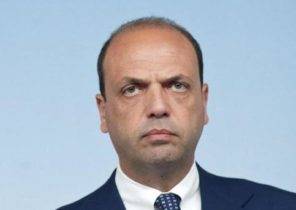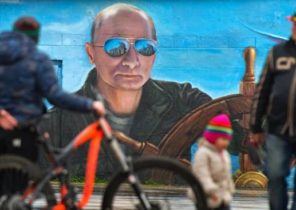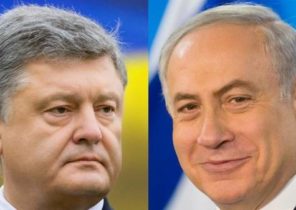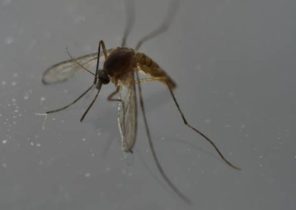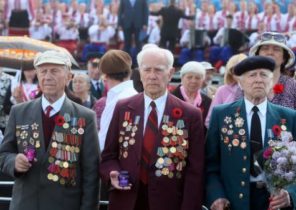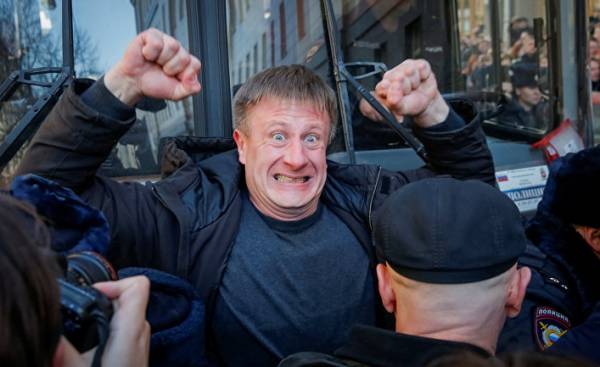
In Russia, where next spring’s presidential election, gaining momentum, the anti-government movement using social networks. Anti-corruption demonstration organized on 26 March with the filing of an opposition blogger Alexei Navalny, were held in 80 cities of Russia, including Moscow. They dealt a blow to the Putin administration. It is difficult to prevent informal demonstrations, so authorities do not know what countermeasures they can take.
March 26 afternoon, Tverskaya street. When demonstrations began, the police immediately arrested the Bulk. Despite this, the procession lasted until the evening. He was arrested several hundreds of the townspeople, who raised placards and argued with the police.
While most of the demonstrators cannot be distinguished from passers-by. Many citizens raised the smartphone and filmed the action mobilized the police. The naked police undertook repressive measures. Among the demonstrators almost no one was hurt.
The reason for the demonstration was a documentary video prepared by the Bulk. It argues that Prime Minister Medvedev with the help of bribes amassed a huge capital. In early March the video was posted on YouTube. It became very popular and gathered more than 13 million views.
State television ignored this video, but Navalny calls to hold a demonstration on March 26 has spread rapidly through the pages in social networks of citizens who watched the documentary. As a result, the number of demonstrators throughout the country has grown to several tens of thousands of people. It is the largest popular demonstrations after the protest movement of 2011-2012.
Authorities seeking to repress opposition forces ahead of presidential elections, is concerned that even if the arrest of the leader, it will be difficult to stop the demonstration, organized through social networks.
In addition, if the demonstration to suppress using military force, relevant photos and videos circled the whole world through social networks. It would only encourage the anti-government movement. In front of such a dilemma was power.
You can tightly restrict the use of social networks, as was done in China and other authoritarian countries.
However, authorities fear that protesters will users take to the streets.
Therefore, the government uses the strategy of soft soothing anti-government movement due to the PR and control over the existing media. On March 27, the press-Secretary of President Dmitry Peskov said that the Bulk of the demonstrators promised the money if someone is arrested. 27 March Moscow court ordered Navalny to 15 days in jail and a fine.
Meanwhile, today’s protests, apparently, there will be consequences. According to Russian media, March 27, hundreds of truck drivers have begun protest action across the country, demanding to cancel the transport tax, which has to do with one of the associates of President Putin. Authorities detained several activists, but the demonstration continues.
The economic crisis in Russia delayed. The quality of life of citizens continues to fall. Russians have a growing dissatisfaction with corruption in government circles. “The Russians splash out accumulated over the years dissatisfaction. High probability that the protests will continue,” — said the Chairman of the Board of the Center for political technologies, Boris Makarenko.
Professor of MGIMO Valery Solovey:
Thanks to the advent of social media protest movement is easy to organize even in the absence of a leader. It is impossible to suppress the demonstration, arresting the leader. You can harass citizens at large scales, however, there is the risk of failure of the police, which is suffering from falling living standards. The government is discussing a ban on the use of social networks, but most believe that they have more pros than cons. If you forbid people to let off steam even in social networks, it is likely that they will take to the streets.
Professor Of Tsukuba University Toshiro Nakamura:
A distinctive feature of this demonstration is part of a large number of young people. They are mostly familiar only with the Putin administration, and are characterized by a sense of hopelessness. Growing juvenile delinquency. Authorities puzzled over how to remedy the situation, increasing the budget to education and expanding the rights of fathers. During the demonstrations it was noticeable that the police behaved in respect of young people restrained. However, the protests quickly subside. They will not affect Putin, who is preparing for a presidential election in March 2018. Most likely, he will take advantage of the growing tension and increasing turnout.
